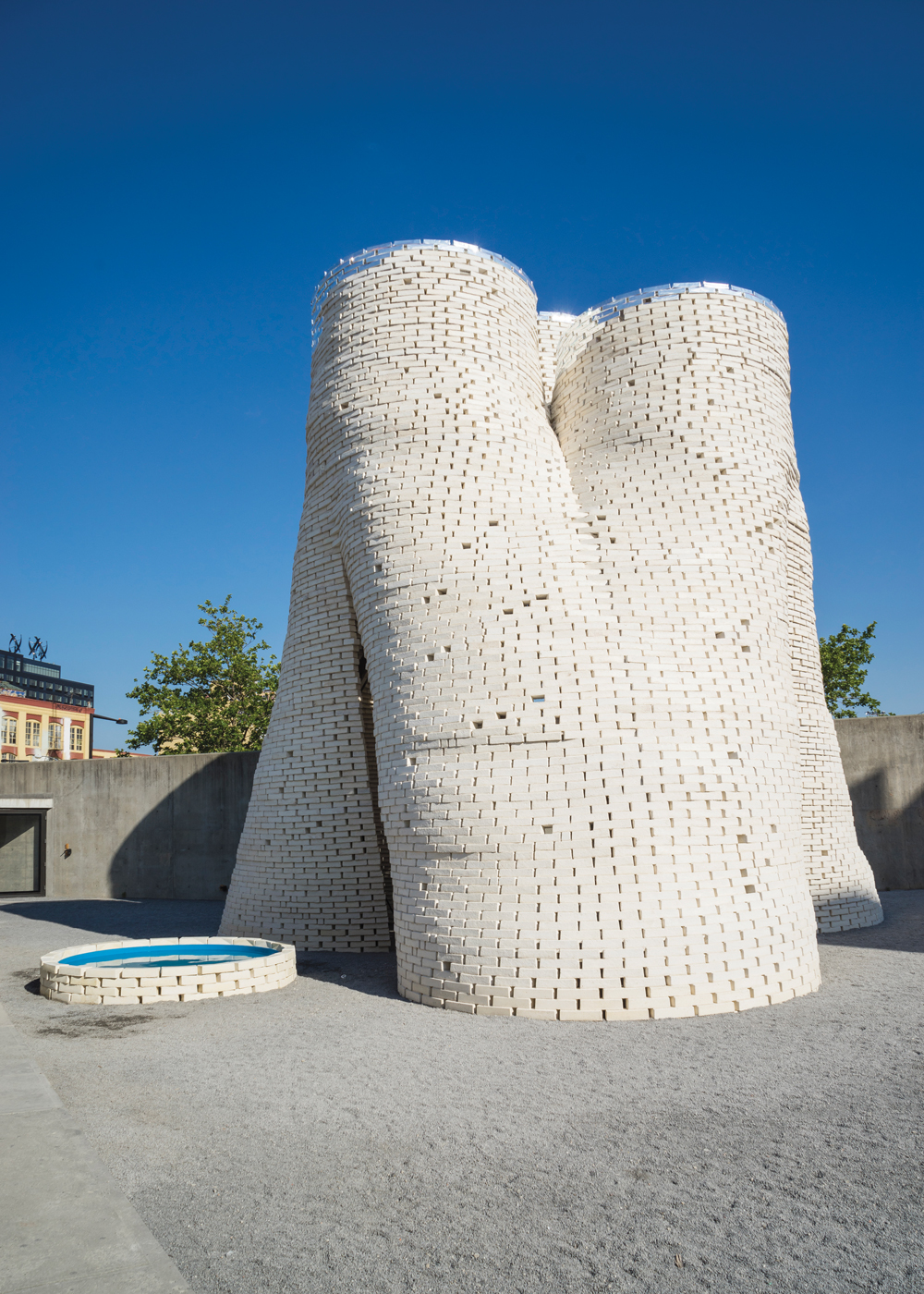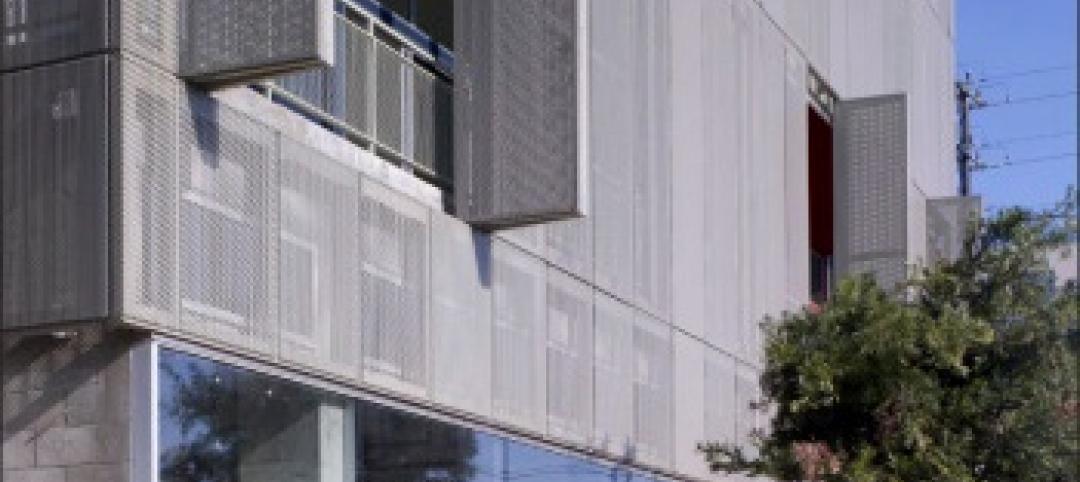Since its launch in 2007, New York-based Ecovative Design has garnered a lot of attention for creating building and packaging materials with low-carbon footprints by mixing agricultural waste with mushroom-derived mycelium. Instead of ending up in landfills, these materials can be composted and reused as soil nutrient.
Last summer, Ecovative Design applied its cradle-to-cradle process to produce 10,000 organic bricks that were used to build Hy-Fi, a three-tower structure that was installed in the courtyard of the Museum of Modern Art’s PS1 site in Long Island City, N.Y. Ecovative was assisted by architect David Benjamin of The Living design studio (acquired by Autodesk in July), structural engineer Arup, environmental engineer Atelier Ten, and SCAPE Landscape Architecture.
Sam Harrington, Ecovative’s Building Products Manager, says the bricks were made by combining chopped corn stalks with specially formulated mycelium. The mixture was packed into molds—which can be of any shape—where it self-assembled and solidified into a lightweight, low-cost object. The molds, made from reflective plastic supplied by 3M, were used (with bricks inside them) to accent the tops of the towers. The towers were demolished in September, and the bricks were composted.
Harrington says the lifespan of these organic materials, which Ecovative has dubbed “Myco Foam,” is similar to that of softwood. “If untreated Myco Foam (in the shape of a brick, or anything else) is kept dry and clean within a building assembly, it will last indefinitely. If it’s chipped into small bits, and mixed with moisture and active soil biota, it will compost in a few months.”
Harrington says Ecovative Design’s primary focus is to use ag waste to make rigid-board insulation.
Read about more innovations from BD+C's 2014 Great Solutions Report
Related Stories
| Apr 26, 2011
Video: Are China's ghost cities a bubble waiting to burst?
It's estimated that 10 new cities are being built in China every year, but many are virtually deserted. Retail space remains empty and hundreds of apartments are vacant, but the Chinese government is more concerned with maintaining economic growth—and building cities is one way of achieving that goal.
| Apr 25, 2011
Earn $300 million by NOT hiring Frank Gehry
An Iowa philanthropist and architecture aficionado—who wishes to remain anonymous—is offering a $300 million “reward” to any city anywhere in the world that’s brave enough to hire someone other than Frank Gehry to design its new art museum.
| Apr 20, 2011
Marketing firm Funtion: to host “Construct. Build. Evolve.”
Function:, an integrated marketing agency that specializes in reaching the architecture, building and design community, is hosting an interactive art event, “Construct. Build. Evolve.” in Atlanta’s Piedmont Park on Thursday April 21, 2011 at 11:00AM EDT. During the event attendees will be asked to answer the question, “how would you build the future?” to rouse dialogue and discover fresh ideas for the future of the built environment.
| Apr 20, 2011
Architecture Billings Index: new projects inquiry index up significantly from February
The American Institute of Architects (AIA) reported the March ABI score was 50.5, a negligible decrease from a reading of 50.6 the previous month. This score reflects a modest increase in demand for design services (any score above 50 indicates an increase in billings). The new projects inquiry index was 58.7, up significantly from a mark of 56.4 in February.
| Apr 19, 2011
What are the 15 most-watched construction and engineering stocks?
According to Motley Fool, a multimedia financial services company, the most-watched construction and engineering stock is Fluor (NYSE: FLR), which ranks #1 on BD+C’s Giants 300 engineering list with $1.994 billion in revenue in 2009. Check out the 14 other most-watched A/E stocks.
| Apr 19, 2011
AIA announces top 10 green Projects for 2011
The American Institute of Architects Committee on the Environment announced its Top 10 Green Projects for 2011. Among the winners: Cherokee Studios in Los Angeles, the Department of Energy's National Renewable Energy Laboratory in Golden, Colo., and the Vancouver Convention Centre West in Vancouver, British Columbia.
| Apr 18, 2011
Greening and Upgrading Today’s Vertical Transport Systems
Earn 1.0 AIA/CES HSW/SD learning units by studying this article and passing the online exam.
| Apr 14, 2011
U.S. embassies on a mission to green the world's buildings
The U.S. is putting greater emphasis on greening its worldwide portfolio of embassies. The U.S. State Department-affiliated League of Green Embassies already has 70 U.S. embassies undergoing efforts to reduce their environmental impact, and the organization plans to increase that number to more than 100 by the end of the year.
| Apr 14, 2011
How AEC Professionals Choose Windows and Doors
Window and door systems need to perform. Respondents to our annual window and door survey overwhelmingly reported that performance, weather resistance, durability, and quality were key reasons a particular window or door was specified.













